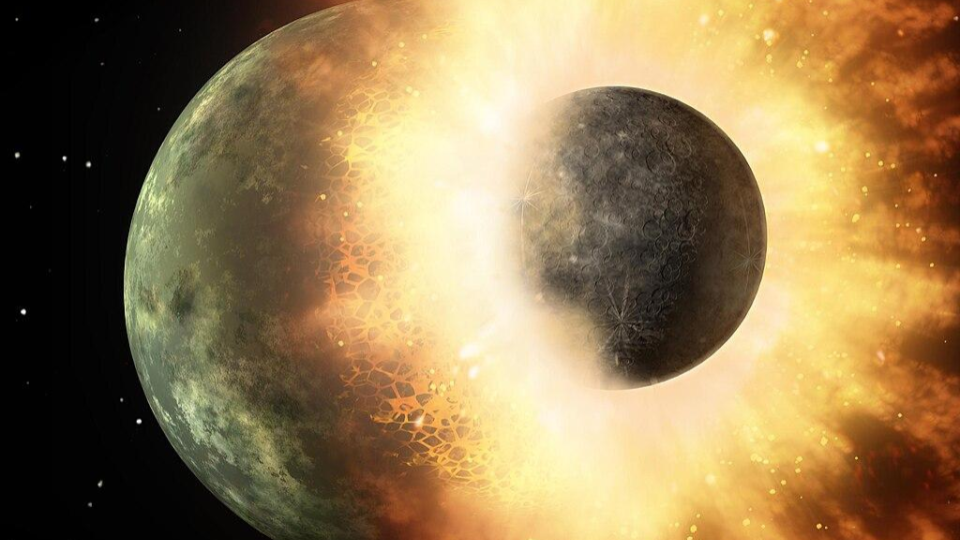
While major asteroid and comet impacts have often been devastating for life on Earth, life on Earth wouldn’t be here without impacts that occurred early in our world’s history.
As the story goes, Due to our planet’s position in the solar system and early hotness, it just didn’t start out with the oceans life enjoys today. Exactly when and what delivered all the H2O we enjoy today is an area of ongoing research. One leading theory looked to the early collision between the proto-Earth and a Mars-sized planet called Thea as one possible explanation. If Thea came from further out in the Solar System where water could have been part of its original composition, a single event could explain the moon’s formation and how the Earth got its ocean’s on.
But new work led by Katherine Bermingham in Geochemica et Cosmochimica Acta says that event wasn’t all that.
Instead, rocks collected from the oldiest geologies on Earth – rocks from when when the Earth and Thea collided – have compositions consistent with inner solar system meteorites.
As Bermingham explains, “Our results suggest that the Moon-forming event was not a major supplier of water, unlike what has been thought previously.”
Like the early Earth, Thea was a dry planet.
This research, while ruling out theories on the origins of water, did bring other issues with Earth’s chemistry into agreement with observations, so there are multiple reasons to trust the study.
Now theorists get to explain how water came later. Either something catastrophic happened without much record, or it was water by a 1000 impacts.
I look forward to seeing what ideas come next.
